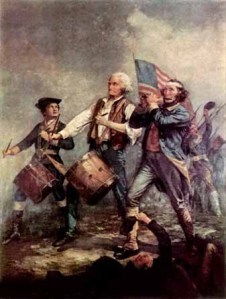
Reading Henry Kissinger’s typically well-considered and intelligent article for the Wall Street Journal this weekend (“A Path out of the Middle East Collapse”), I had a growing sense that it isn’t so much a prescription for the future as a description of the past.
The sense began with the first paragraph, in which Kissinger defines the scope of what’s collapsing, and dates it only to 1973, when the U.S. moved to stabilize the Middle East during the Yom Kippur War.
But far more than recent U.S. policy on the Middle East is collapsing today. What we’re seeing is more like the collapse of “Rome” itself: the organization of Western power as a Europe-centric territorial phenomenon, setting unbreachable boundaries north, south, and west of a restless and perennially “unorganizable” Middle East. Continue reading “The future of our time: Rewriting ‘Westphalianism’”



